Major Updates
- American Rescue Plan Moves Through Congress, Towards President’s Desk
The fifth major Coronavirus relief bill and the first for President Biden, the American Rescue Plan is moving through Congress. Democrats have decided to use the budget reconciliation process, a parliamentary maneuver with a lower vote threshold for passing bills in the Senate. This will help with final passage, since Democrats have a slim majority with the 50-50 split in the Senate, with Vice President Harris’ tie-breaking vote. Bipartisan support of the bill is not expected. The $1.9 trillion bill provides for additional stimulus checks and unemployment relief, hundreds of billions allocated for vaccine distribution, $350 billion for state and local budget shortfalls from lost tax revenue and expenditures. The $15/hr minimum wage increase did not pass muster with Senate rules (budgetary considerations are restricted in their scope, and the Senate Parliamentarian issued a final ruling that it is not applicable as part of this unique legislative vehicle).Significant funding of $40 billion is set aside for higher education, a marked increase from the $23 billion included in the December COVID relief bill, and almost triple the $14 billion included in the CARES Act last spring. Still, this is seen by many experts as insufficient compared to the estimated shortfall of $100+ billion facing students and institutions. The distribution and use of these funds will largely reflect the same formulas as seen in the December bill which we previously covered.
However, there is a new provision based on the portion of Pell grant recipients who were exclusively enrolled in distance education courses prior to the pandemic. That portion is to be expected to be spent fully on student emergency grants. Additionally, the bill will bar states from disproportionately cutting higher-education funding in the 2022 and 2023 fiscal years. The House has voted to pass the bill, and the Senate will vote sometime in the first week in March, with final signature expected around mid-March from President Biden.
- US Department of Education Staff Takes Shape; Biden Lowers Expectations for Debt Relief
The past month has brought us a clearer look at how the Biden Administration will staff the US Department of Education, what that may mean for implementation of policy, and which issues they may focus on over the next four years. Last month, we covered the choice for Education Secretary Miguel Cardona, who is expected to be confirmed shortly. This month provided more clarity on junior positions, the most significant of which was James Kvaal being tapped as Under Secretary at the Department of Education. This position drives policies and regulations at the Department for higher education, including federal student aid. Kvaal was a deputy domestic policy adviser in the White House to Barack Obama, where he focused on making college tuition more affordable, protecting students from unaffordable loans and increasing student graduation rates and outcomes, oftentimes through greater institutional accountability. The focus on these areas are present throughout his career, including his work in Congress and the Clinton Administration.February had additional announcements of some other key positions in Department staff including Michelle Asha Cooper appointed as Deputy Assistant Secretary for Postsecondary Education. In the absence of an Assistant Secretary of Postsecondary Education, Michelle fills the role of Acting Assistant Secretary for Postsecondary Education, which oversees higher education programs, international and foreign language education, policy, planning and innovation, and accreditation issues at the Department. Asha Cooper comes from her most recent role as the President of the Institute of Higher Education Policy (IHEP), an organization focused on ensuring equal educational opportunities for all students, particularly underserved students including low income students, students of color, and adult learners. The totality of these appointments portend a greater focus on student access, equity for underserved communities, and a continuation of Obama-era focus on stopping predatory practices and expanding the access mission of higher education by supporting HBCUs and other Minority Serving Institutions. We can also assume a greater focus on institutional accountability and student outcomes.
Student debt also continues to be a big focus of Democrats. While Senate Majority Leader Chuck Schumer and Senator Elizabeth Warren, along with a few more progressive House members announced a bill on $50,000 in student debt forgiveness, President Biden quickly followed up with his thoughts during a question about the scale of forgiveness during a recent town hall, flatly stating “I will not make that happen.” He went on to explain that he didn’t see the need to provide debt forgiveness to graduates of more elite colleges, who may rack up higher loans but go on to earn more money. The president also said that he does not believe he has the authority to forgive that amount of debt through executive action. He mentioned a willingness for a lower number such as $10,000, and continued to plug his campaign promise of two years of community college or other high-quality training program, debt free, for families below a certain income threshold.
Other News
- Today’s Students Coalition and LeadMN Host D.C Student Summit (March 21-24)
This four-day virtual trip will offer students the opportunity to meet with their representatives in Congress and will equip them with the tools to uplift student voices in the halls of the Capitol. Attendees will gain hands-on experience working on federal higher education issues and insight into how policymaking works. - Justice Department Drops Race Discrimination Lawsuit Against Yale University (NPR)
- UPCEA Cosigns Letter to Senate Leadership in Support of the Dream Act 2021
- More College Students Are Eligible for Food Stamps (Inside Higher Ed)
University faculty members are discovering that students are using the internet to cheat on exams. Online sites sell test questions, answer keys, term papers and other assessments to students. There is a cure for this.
It’s not news that students cheat to pass classes, though this has recently been in the news with the discovery that hundreds of Air Force cadets used the internet to cheat on exams. And we have read the articles about Chegg selling access to information that apparently includes test answers.
While the students who turn to cheating would seem to be too lazy, busy or unable to learn the assigned material, one can often also say that faculty members may be too lazy, busy or unable to design custom assessments that are relevant, unique and promote creative/critical thinking. The “objective” test is founded in the realities of life prior to the 21st century.
A strong parallel can be drawn to the requirement to hand-calculate rather than using a calculator. In the 20th century, calculators were banned from many exams on the premise that graduates would encounter situations when they would not have access to a calculator. However, today calculators are ubiquitous — on your wrist, in your phone and multiple places on your laptop. Now it is very hard to imagine many circumstances in which one would not have instant access to a calculator, stand-alone or through the internet, to perform advanced operations.
That brings us to the objective test. In many cases, these tests are standardized exams offered with specific textbooks. These are off-the-shelf assessments that lack localized perspective, devoid of selected relevant contextual factors and designed without attention to making them learning experiences. In far too many cases, they are tests of rote memorization. Yet our smartwatches, phones and laptops serve as our extended “virtual memory.” They accurately store and instantly retrieve facts, concepts and even provide keyword relevance. There is no need to test material readily available on the internet when you are testing a person.
Instead of mere retrieval of facts, assessments, in their best form, are stimulating creative thinking, prompting application of knowledge, relevant to current locations and problems, and providing learning experiences in and of themselves.
Grant Wiggins is often quoted for his study in this area. Indiana University quotes Wiggins:
Authentic assignments often focus on messy, complex real-world situations and their accompanying constraints; they can involve a real-world audience of stakeholders or “clients” as well. According to Grant Wiggins (1998), an assignment is authentic if it
- is realistic.
- requires judgment and innovation.
- asks the student to “do” the subject.
- replicates or simulates the contexts in which adults are “tested” in the workplace or in civic or personal life.
- assesses the student’s ability to efficiently and effectively use a repertoire of knowledge and skills to negotiate a complex task.
- allows appropriate opportunities to rehearse, practice, consult resources, and get feedback on and refine performances and products.
Wiggins has published much since his original work on authentic assessments. Clearly, authentic assessments are never a multiple choice of a, b, c, d or true/false exams.
Some faculty members seem to think that in designing a course, after creating the learning activities and assembling the resources for a class, they are done. Assessments come as an afterthought. They are a necessary tool to weed out those who have not read the material. Certainly, cheating sites defeat that purpose. Furthermore, no thought is given to assessing the students’ ability to assimilate and apply the essence of the subject.
Well-formed assessments should be the pinnacle of the course. They are where the student tries out applying what has been learned to a sampling of important, relevant problems. These can be messy. They can require multiple tries. Many are best done in front of an audience. They may be applicable to only very local problems or ones halfway around the globe. They are authentic applications of what has been learned. Wiley Education Services offers some examples and strategies to develop and create rubrics for authentic assessments.
The context of applying our learning is so important that we must pay constant attention to changing circumstances. In most cases societal and technological changes call for updating of authentic assessments every semester. Keeping them timely and relevant vaccinates against cheating. There is no shortcut to demonstrating that you can apply what you have learned to a unique, newly shared situation. It is authentic. It is only fair to the students to give them this opportunity before they leave the class and attempt to apply their skills and knowledge in society.
Are you and your colleagues protected against cheating in your classes? Are you using authentic assessments?
This article was originally published on Inside Higher Ed’s Transforming Teaching + Learning blog.
WASHINGTON, February 22, 2021 – UPCEA, the Washington, D.C.-based association for college and university leaders in professional, continuing, and online education, is pleased to announce the election of two new officers and seven new directors to serve on the UPCEA Board of Directors. Elected earlier in February, these individuals will assume their roles at the conclusion of the virtual 2021 UPCEA Annual Conference on April 9, 2021.
“On behalf of the Governance and Nominations Committee and the entire association, I am so pleased to welcome these exemplary individuals to their leadership roles,” said Nancy Coleman, Dean of the Division of Continuing Education and University Extension at Harvard University; 2020-2021 UPCEA President-Elect, and Chair, UPCEA Governance and Nominations Committee. “It is strong and qualified leaders like our new officers and directors that are enabling both our association and our field to thrive, and I’m looking forward to the impact they will have on the association.”
“The success of our association—and indeed our field—rests with leaders like these incoming Board members,” said Bob Hansen, UPCEA CEO. “It will be a pleasure to work with these professionals from across the field during their terms.”
UPCEA welcomes two officers and seven Directors At-Large to the 2021-2022 Board of Directors:
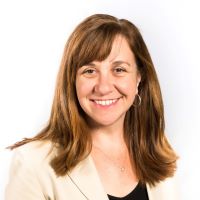 |
Lisa L. Templeton, Associate Provost, Division of Ecampus at Oregon State University, will serve as President-Elect for a one-year term (2021-2022). At OSU, she provides strategic leadership for units that provide adult learners in Oregon and around the world with access to an OSU high-quality education. Ecampus encompasses OSU Online Education, OSU Ecampus Open Educational Resources Unit, and the OSU Ecampus Research Unit. Under Templeton’s leadership, Ecampus has built a reputation as one of the nation’s best providers of online education, delivering more than 1,500 courses and over 80 degree programs to distance learners in 50 states and more than 50 countries.
|
|
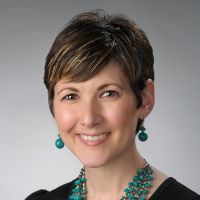 |
Karen Bull, Dean, Division of Online Learning at University of North Carolina at Greensboro, will serve as Regional Cabinet Chair for a two-year term (2021-2023). Dr. Bull previously served as the Associate Dean of Academic Affairs at Syracuse University. Dr. Bull’s previous administrative appointments include Interim Associate Dean of Academic Affairs and Online Programs and Manager of Online Programs and Services at Syracuse University. Dr. Bull also served as Director of Program Evaluation and Assistant Director of Distance Learning at Onondaga Community College.
|
|
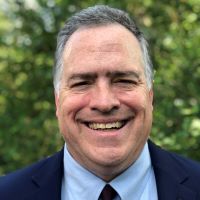 |
Mark Bernhard, Vice Provost for Continuing Education at North Carolina State University, will serve as a Director At-Large for a two-year term (2021-2023). Dr. Bernhard oversees a $44 million operation that includes over 100 full-time employees as well as many part-time and temporary employees. He recently served as the co-chair of NC State’s University Strategic Plan Taskforce on Reenvisioning Lifelong Education and Credentialing. Dr. Bernhard previously served as Associate Provost for Outreach and Engagement at the University of Southern Indiana, as Director of Continuing and Professional Education at Virginia Tech, and as a Senior Conference Planner and Conference Planner at Penn State. He holds a Ph.D. in Workforce Education and Development from Penn State, and has co-edited a book on succession planning in the public sector. Dr. Bernhard is committed to excellence and innovation, and making a positive difference in the world.
|
|
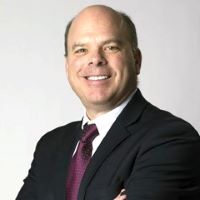 |
John Caron, Provost and Vice President for Academic Affairs at Excelsior College, will serve as a Director At-Large for a two-year term (2021-2023). Dr. Caron is a seasoned senior leader and educator with expertise in developing strategic plans, inspiring people around a vision, launching new programs into the market quickly, and managing diverse teams. Dr. Caron has provided leadership for diverse portfolios of programs at nationally recognized institutions such as Johns Hopkins University, Northeastern University and Brown University. Colleagues describe Dr. Caron as a collaborator and connector. Dr. Caron is passionate about mentoring new professionals and passing on lessons learned.
|
|
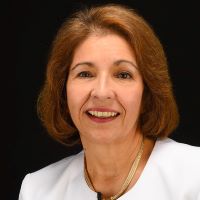 |
Roxanne Gonzales, Provost/Vice President of Academic Affairs & Tenured Professor at New Mexico Highlands University, will serve as a Director At-Large for a two-year term (2021-2023). Dr. Gonzales’ previous roles include Executive Dean at Clarion University; Academic Dean, College for Professional Studies at Regis University; Dean, Distance Learning at Park University; Director of Education and Training at Hanscom AFB; and Guidance Counselor/Assistant Education Services Officer at Bitburg AB in Germany. Dr. Gonzales is a tenured Professor of Adult Education. Dr. Gonzales is published and presents nationally on adult learning, military/veteran education environments, online learning environments, assessment of learning, and alternative programming for first generation learners. Dr. Gonzales holds a doctorate from the University of Massachusetts – Boston in Higher Education Administration.
|
|
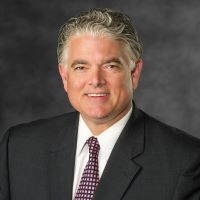 |
Michael Huffman, Founding Director, Office of Continuing and Professional Education at Virginia Commonwealth University, will serve as a Director At-Large for a two-year term (2021-2023). Dr. Huffman is a high-performing university administrator with expertise in assembling effective teams, P&L management, budgeting, business development, strategic planning, new market development, digital marketing strategies, delivery of noncredit and credit-based courses and programs, digital badging, and student recruitment. Dr. Huffman has significant career experience and success in the private sector working in investment banking, capital markets, small business consulting, and venture capital spaces. Dr. Huffman has a record of experiences requiring innovative and entrepreneurial thinking while working collaboratively with founders of start-ups or leadership of organizations with multiple business lines and teams. Dr. Huffman also has experience working with diverse faculty and staff across the university and with industry partners.
|
|
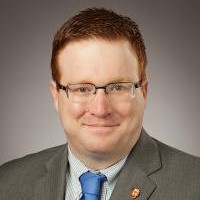 |
Justin Louder, Associate Vice Provost for eLearning & Academic Partnerships and Interim Superintendent, TTU K-12; Assistant Professor of Practice & Adjunct Graduate Faculty – College of Education at Texas Tech University, will serve as a Director At-Large for a two-year term (2021-2023). Dr. Louder is the primary consultant for college and department leaders on the development of new, high-demand eLearning degree and certificate proposals. Dr. Louder also oversees Blackboard support, instructional design, compliance, and regulation for online and regional site programs. As the interim superintendent for TTU K-12, Dr. Louder leads a number of initiatives to modernize and streamline technology and apply best practices to online programs. Dr. Louder is a frequent national and international presenter, lecturer, and author on the topics of distance and online learning and accessibility.
|
|
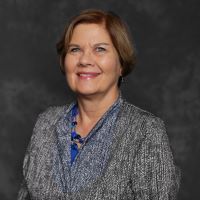 |
Sheila Thomas, Assistant Vice Chancellor and Dean, Professional and Continuing Education at California State University, Office of the Chancellor, will serve as a Director At-Large for a two-year term (2021-2023). Dr. Thomas facilitates workforce development, strategic communication, policy review, advocacy, and also holds responsibilities for veterans affairs and Cal State Online. In response to COVID-19, Dr. Thomas mobilized PaCE to create the Courses for Causes initiative, providing free professional development courses for essential workers. Dr. Thomas has previously served as a board member for UPCEA and NPSMA, and in administrative roles at two CSU campuses as well as a private institution. Dr. Thomas recently contributed a chapter on women in higher education to the reference book Accessibility and Diversity in the 21st Century University, published by IGI Global.
|
|
 |
Pamela Wimbush, Associate Dean, Program Operations and Support, College of Continuing Education at California State University, Sacramento, will serve as a Director At-Large for a two-year term (2021-2023). Dr. Wimbush has 20 years of experience working in higher education which includes administration of learning management systems and distance education at the University of North Carolina at Chapel Hill and leadership positions at Northern Virginia Community College, Johns Hopkins University, Hampton University, and the University of North Carolina at Charlotte. Dr. Wimbush holds a B.S. in Computer Studies, M.S. in Distance Education, M.S. in Management, and Ed.D. in Educational Administration. Dr. Wimbush is active in UPCEA, OLC, Quality Matters, and EDUCAUSE.
|
Additionally, UPCEA is pleased to announce the selection of three new members of the Diversity & Inclusive Excellence Committee and two new members of the Finance Committee. In their roles on these two Board-level committees, these individuals are undertaking critically important work for the association and the field.
 |
Kisha Carmichael-Motley, Instructional Technology Consultant for UNCG Online at the University of North Carolina at Greensboro, will serve on the 2021-2022 Diversity & Inclusive Excellence Committee. Carmichael-Motley develops online courses at the undergraduate, graduate, and doctoral level; professional development with staff and student organizations; and is involved in the creation of departmental websites. Carmichael-Motley has served as Staff Senate CoChair, UNC System Staff Assembly as well as on the UNCG Chancellor’s EDI Committee.
|
|
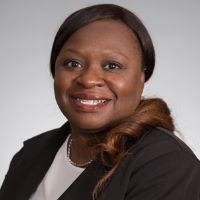 |
Nichole Henry, Director of Admissions & Recruitment at Syracuse University, will serve on the 2021-2022 Diversity & Inclusive Excellence Committee. Henry works with both academic institutions and industry leaders to meet the challenges of student enrollment and various aspects of student services. A strong relationship-builder, Henry has enabled connections that increase the awareness of the college and ignite interest in new academic programs. Henry has worked in higher education for more than 18 years, and is an advocate for the powerful role education holds in shaping a community. Henry has worked with colleagues on incorporating a solid foundation of programs geared to increase and sustain diverse enrollment, advising and engaging student programming.
|
|
 |
TC Rogers, Academic Director for Online Programs at Johnson & Wales University, will serve on the 2021-2022 Diversity & Inclusive Excellence Committee. Dr. Rogers is passionate about eradicating inequity in education and providing real world learning that leads to viable careers. Dr. Rogers’ work for the College of Online Education at Johnson and Wales University has included oversight of SLO assessment, the College of Business (across four campuses) and currently, micro-credential programming and the College of Engineering & Design. Dr. Rogers’ previous work focused on student motivation, retention and faculty mentorship. Dr. Rogers designed a coaching program for students at academic risk, which led to paramount graduation rates and the award of a $2.2 million Title III government grant.
|
|
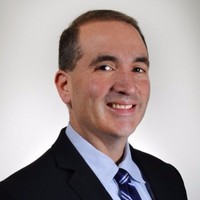 |
David Kaplan, Director of Enrollment, Business, and Student Services at the University of San Diego, will serve on the 2021-2022 Finance Committee. Kaplan has more than 15 years of direct experience in financial analysis, budgeting and planning, management, and leadership. Kaplan received his undergraduate degree from Syracuse University and his MBA from Pepperdine University. He is proud to have been working at USD for 13 years and looks forward to contributing to UPCEA in this role.
|
|
 |
Jennifer Phillips, Business Officer, Division of Educational Outreach at Western Carolina University, will serve on the 2021-2022 Finance Committee. Phillips is passionate about her work and the opportunities it affords to support the students that take part in Western Carolina’s professional development, continuing education and online programs. Phillips is a proud graduate of Western Carolina University two times over, having earned both undergraduate and graduate degrees there. Phillips is also a very proud first-generation college student. Phillips has had the privilege of serving Western Carolina for more than 10 years.
|
# # #
About UPCEA
UPCEA is the association for professional, continuing, and online education. Founded in 1915, UPCEA now serves most of the leading public and private colleges and universities in North America. With innovative conferences and specialty seminars, research and benchmarking information, professional networking opportunities and timely publications, we support our members’ service of contemporary learners and commitment to quality online education and student success. Based in Washington, D.C., UPCEA builds greater awareness of the vital link between adult learners and public policy issues. Visit www.upcea.edu.
With enrollments falling, college budgets under strain and employers dissatisfied with the relevance of graduates’ learning, now is a time for more than replication or revision — it is time for reinvention.
We are at the confluence of massive economic, technologic and social changes that demand higher education do more than small fixes. We will not thrive if we merely tweak the system to replicate practices of the lecture hall in an online delivery system. This is not an empty warning — universities across the country are closing programs, laying off staff and faculty, and teetering on the brink of bankruptcy. I have personally been tracking these economic disadvantages for some time now.
Here are the key factors we must consider:
- Enrollments dropped more than half a million students last fall, capping a decline every year for the past decade.
- Fewer employers are requiring college degrees; instead they are seeking documentation of specific skills and abilities such as these identified by the National Association of Colleges and Employers.
- Economists predict a grim outlook for the bottom line in higher education. Moody’s continues to put a negative outlook on the field: “Overall, higher education revenue will decline by 5 percent to 10 percent over the next year as universities continue to face pandemic-related shocks, Osborn says. At the same time, high fixed costs and varied assumptions about how long the crisis might last hamper universities’ ability to adjust expenses quickly. Operating performance will decline as a result, with about 75 percent of public universities and 60 percent of private institutions failing to generate cash flow margins above 10 percent.”
- A demographic drop of 15 percent, as an echo of the 2008 recession, is expected to begin to hit traditional-age college attendees by the middle of this decade. This is expected to hit especially hard in the Midwest and Northeast.
- The Fourth Industrial Revolution will herald the advent of artificial intelligence replacing white-collar jobs that are the target of many degree programs, including middle management, entry-level engineering, therapists, physicists and accountants with positions in such areas as cybersecurity, virtual reality, virtual assistants, blockchain and many associated technology-oriented areas.
- The U.S. Bureau of Labor Statistics reports that Americans are changing jobs and employers at a rapid rate: “The median number of years that wage and salary workers had been with their current employer was 4.1 years in January 2020.”
Our centuries-old model of admitting 18-year-old high school graduates for a four-, five- or six-year baccalaureate, then sending them out for lifelong careers in business and industry is no longer relevant. The average total cost of those years averages between $100,000 and $400,000 including tuition, fees, room, board and associated expenses. Meanwhile, students exchange this for years of potential loss in experience, entry wages and advancement opportunities.
When I started teaching as a tenure-track assistant professor in 1977, far more than half the teaching faculty were tenured or on the tenure track. Now, less than one-quarter of faculty are full-time tenured or tenure-track employees. Increasingly, part-time faculty with no benefits and very low salaries are teaching those students who paying hundreds of thousands of dollars for their degree.
Our worn-out model doesn’t work anymore.
The shakeout of academic jobs, programs and even entire institutions is accelerating. We must recognize the forces at play and respond. The changes require more than merely adjusting our programs and approaches. They demand a completely new examination of the changing student needs, marketplace demand and revenue-generation models.
We are confronted less often with the traditional 18-year-old learner and increasingly with the 60-year learner — students who return repeatedly through their career seeking upskilling and wholly new competencies. These students need just-in-time learning that addresses the changing needs of employers and entrepreneurs in an AI-rich environment. To best serve these learners, we must anticipate emerging needs and be agile and responsive in developing curricula to meet the job market. That, in turn, requires a close connection to business and industry. It calls for certificates and certifications that are relevant and grow with the learner and the industry.
Is it possible that our venerable tuition and fee model that is open to haggling and situational adjustments has served its usefulness? Is it possible that $1.6 trillion in student debt is enough? Would it make sense to consider — even on a trial basis — a subscription model for students, and perhaps employers on their behalf, to pay a small continuing fee for forward-thinking, cutting-edge, career-accelerating learning opportunities? Of course, these could be made available just in time, online, accessible anywhere and at any hour.
Who is leading the deep examination of these changes and opportunities on your campus? Is the institution more engaged in cutting expenses and replicating the few programs that are succeeding today while revising the failing programs than in enlightened visioning of the road ahead?
This article was originally published on Inside Higher Ed’s Transforming Teaching + Learning blog.
Higher education and romance have a lot in common. Both can be long- or short-term. Short-term relationships may be low risk and could be analogous to earning a badge, watching a training video, or participating in a Massive Open Online Course (MOOC). It’s a date with an education provider or a content creator. On the other hand, a long-term relationship, such as marriage or a serious relationship, is typically more complex and requires a little bit of luck. Higher education is a lot like online dating or relationship development depending on the goals of the stakeholders. Dating and relationship development in a modern world is app-driven, using programs such as Tinder, Bumble, Match, etc. How adult learners initially shop for higher education institutions is similar to how users find matches on a dating app! They spend hours researching programs to find their perfect “match” with certain criteria in mind like location, delivery method, institutional brand, and more.
23 of 27 Institutions Ranked in Top 25 are UPCEA Members
WASHINGTON, D.C. (February 8, 2021) — UPCEA, the association for college and university leaders in professional, continuing, and online education, is pleased to congratulate the many UPCEA members recognized in the 2021 U.S. News & World Report Best Online Programs rankings.
U.S. News rankings include more than 1,600 online programs, covering bachelor’s and graduate programs across a variety of fields. The U.S. News rankings focus on programs designed to be completely online, excluding schools and programs that are online temporarily due to the pandemic. Using information provided by participating institutions, the ranking methodologies include factors such as student services and technology, student engagement, and faculty credentials and training.
“UPCEA members continue to innovate and provide incredible online experiences for faculty and students,” said Julie Uranis, Vice President of Online and Strategic Initiatives for UPCEA. “Many leaders from these same institutions are also sharing their knowledge and lessons learned at the completely virtual 2021 Summit for Online Leadership and Administration next week. Our members are not only leading successful online enterprises but they are doing great things in support of their institutions through the most challenging of circumstances!”
“We at the University of Illinois Chicago are proud of our U.S. News and World Report ranking because it highlights our faculty’s long-standing commitment to teaching high-quality and student-focused online degree programs,” said Dara Crowfoot, Assistant Vice Chancellor for Innovation, UIC Extended Campus at the University of Illinois Chicago. “When the pandemic hit, the faculty from our online programs stepped up to mentor and train faculty who had to move their campus courses online. This same kind of powerful collaboration happens across our online programs, which meet monthly to share best practices in online teaching.”
Twenty-three of the twenty-seven Top 25 ranked institutions are members of UPCEA:
1 – Embry-Riddle Aeronautical University
2 – University of Illinois at Chicago
3 – University of Florida
4 – The Ohio State University
4 – Oregon State University Ecampus
6 – Arizona State University
7 – University of Arizona
8 – University at Buffalo – SUNY
8 – CUNY School of Professional Studies, Graduate Center of the City University of New York
10 – Colorado State University – Global Campus
10 – Pennsylvania State University – World Campus
10 – University of Georgia
14 – North Carolina State University
14 – University of Central Florida
14 – University of Missouri
14 – University of Oklahoma
19 – George Washington University
21 – Indiana University – Online
21 – Loyola University Chicago
21 – University of Arkansas
21 – University of Massachusetts – Amherst
21 – Utah State University
21 – West Texas A&M University
“The University of Florida is showing the world and its peer research institutions what a modern research university is capable of when it embraces new forms of undergraduate learning pathways, all while remaining true to its ideals and commitments to academic excellence,” said Evangeline Cummings, Assistant Provost and Director of UF Online at University of Florida. “I’m proud that the University of Florida now welcomes learners worldwide to earn a UF bachelor’s degree taught entirely by UF faculty and fully-supported by an in-house UF campus-wide team.”
Congratulations to all of the UPCEA members recognized in this year’s rankings!
“UPCEA member institutions have not only persevered, but triumphed over some of the most challenging conditions in the history of higher education,” said Bob Hansen, CEO of UPCEA. “I’m extremely proud to see so many of them receive this well-deserved recognition by U.S. News & World Report.”
Originally held Tuesday, January 19, 2021 at 1:00 PM ET
In the midst of profound disruption rendered by the 2020 pandemic, agility, creativity, and acumen will serve as key strategic underpinnings for higher education in 2021. Institutions will need to look beyond 2020’s short-term solutions to more proactive approaches stemming from social, technological, curriculum, financial, and policy trends re-shaping the educational landscape at an increasing velocity. Join leading thinkers as they highlight important developments that emerged in 2020, and make predictions for 2021 and beyond that will impact UPCEA members.
Speakers:
- John O’Brien, President and CEO, EDUCAUSE
- Julie Peller, Executive Director, Higher Learning Advocates
- David Schejbal, President, Excelsior College
- Moderator: Goldie Blumenstyk, Senior Writer, Chronicle of Higher Education
The recording is available to view in the embedded player, above, or here.
Exciting news — the Marketing and Enrollment Management Seminar will again be held virtually in 2021. The 2020 Seminar was a great success, with many first-time attendees among the more than 1,250 registrants.
We heard clearly from UPCEA members like you that institutional budget and travel restrictions would severely limit access to in-person events for many of our members in 2021. For this reason, the volunteer planning committee and UPCEA staff believe that a virtual event is the best path forward for marketing and enrollment professionals in our field.
This year’s seminar is tentatively scheduled for December 1-3. The planning committee is already hard at work developing an engaging program, and you’ll see more information soon from the seminar’s co-chairs.
I hope you and your team will join us online. As a 2020 attendee said: “A huge ‘THANKS!!!’ to UPCEA for providing the option for member institutions to pay a flat fee and allow several staff to attend during this very difficult time!”
Session recordings and materials from the 2020 Seminar will be available in CORe, UPCEA’s members-only community, next month.
